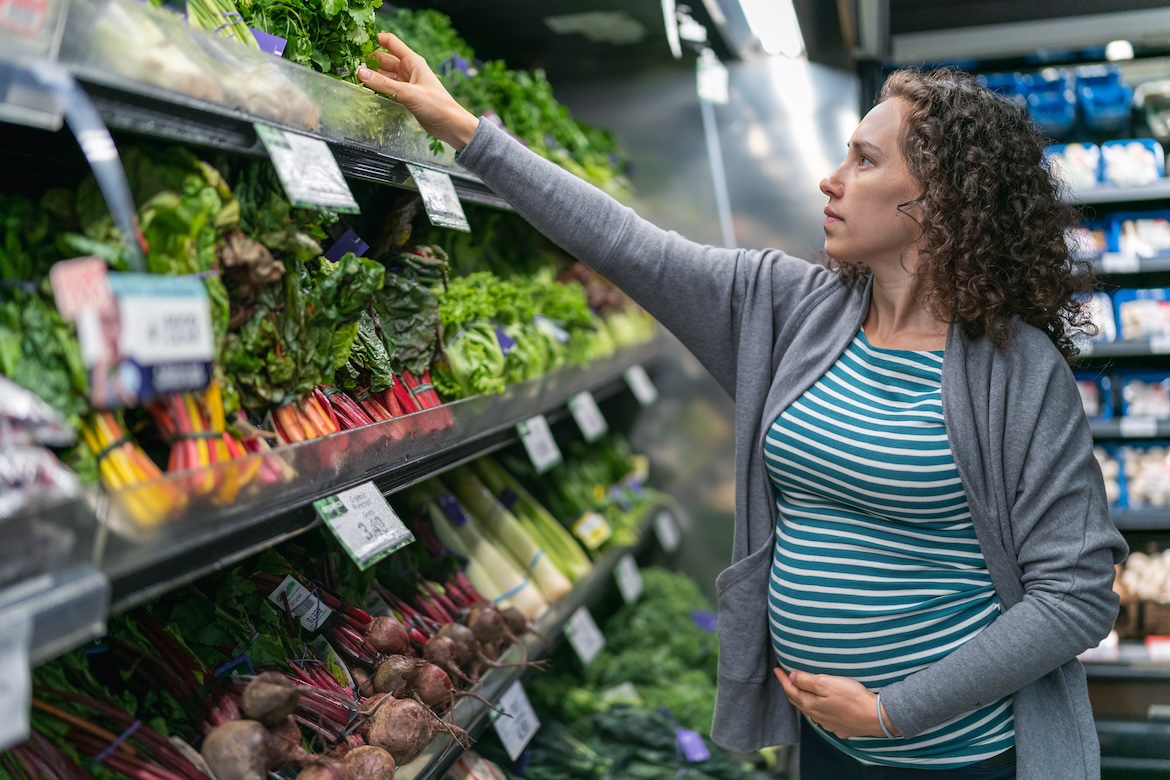Painful periods are not indicators of good fertility. Rather, they may signal underlying health...
Read More
Pregnancy is an exciting journey that's full of changes. Your body is growing a new little person, your hormones are in overdrive and you’re probably experiencing some unexpected cravings. But as you navigate those late-night donut urges or pickle-and-ice-cream fantasies, knowing which foods can pose risks for you and your baby is vital.
“Cravings often surface in the first trimester, around six to eight weeks into pregnancy, coinciding with the height of morning sickness for many,” said Waverly Lutz, C.N.M., a certified nurse-midwife with Inspira Health. “Rising levels of estrogen and progesterone alter taste and smell receptors, making certain flavors irresistibly appealing or completely off‑putting.”
While cravings don’t always point directly to a missing nutrient, they can sometimes hint at increased needs. Paying attention to what you crave can offer clues about your body’s changing needs, so long as you balance indulgences with nutrient‑rich choices.
Listeria monocytogenes is a hardy bacterium that thrives in cool, damp environments and can contaminate everything from unpasteurized milk and soft cheeses to ready‑to‑eat deli meats and raw produce. “When ingested, Listeria can invade the bloodstream, cross the placenta and infect the fetus,” said Lutz. “This infection raises the risk of miscarriage, preterm labor or life‑threatening infection in newborns.”
Although listeriosis remains uncommon, pregnant people are about 10 times more susceptible. And of those who do become infected, up to one in four will experience miscarriage or lose their baby shortly after birth.
Here’s how you can reduce your risk:
These tips can help you lower your risk of listeriosis, keeping you and your baby safe throughout your pregnancy journey.
Raw or undercooked proteins also deserve extra scrutiny. Sushi with raw fish, rare steak, runny‑yolk eggs and even some seemingly innocent salads topped with poached eggs or homemade dressings can harbor pathogens like Salmonella, E. coli or Toxoplasma gondii.
In the short term, infections often cause fever, nausea, vomiting, diarrhea and dehydration. “Certain organisms can also cross the placental barrier or trigger an inflammatory response that endangers fetal health,” said Lutz. “Because these risks can have acute and long‑term consequences for you and your baby, it’s safest to eat all meat, seafood and eggs fully cooked.”
Mercury, a heavy metal found in larger predatory fish, can harm developing nervous systems. While seafood provides essential omega‑3 fatty acids, pregnant people should limit or avoid high‑mercury varieties such as swordfish and bigeye tuna. Instead, opt for lower‑mercury options like salmon, shrimp or canned tuna, and consume no more than six ounces per week.
Balancing satisfying a food craving with the responsibility of safeguarding your baby doesn’t mean deprivation; it’s about making informed swaps. “High concentrations of added sugars in sodas, pastries or candy can contribute to excessive weight gain and elevate the risk of gestational diabetes, which affects roughly 5 to 9 percent of pregnancies in the United States,” said Lutz.
Try sparkling water infused with fresh berries to indulge a sweet tooth without the sugar spike. Craving something creamy? A fruit and yogurt parfait with a sprinkle of granola can hit the spot. If you need something crunchy and savory, air‑fried chickpeas or baked kale chips offer texture alongside a boost of fiber and protein.
When in doubt, a quick call or question at your next appointment can spare you stress and keep your little one safe. As you navigate this remarkable journey, honoring your cravings and your baby’s needs will help you forge a healthy foundation, one delicious, mindful bite at a time.

Painful periods are not indicators of good fertility. Rather, they may signal underlying health...
Read More
Maximizing the benefits of Menopausal Hormone Therapy is all about balance. Learn how simple...
Read More
Discover the benefits of gentle C-sections, a compassionate approach to cesarean births that...
Read More